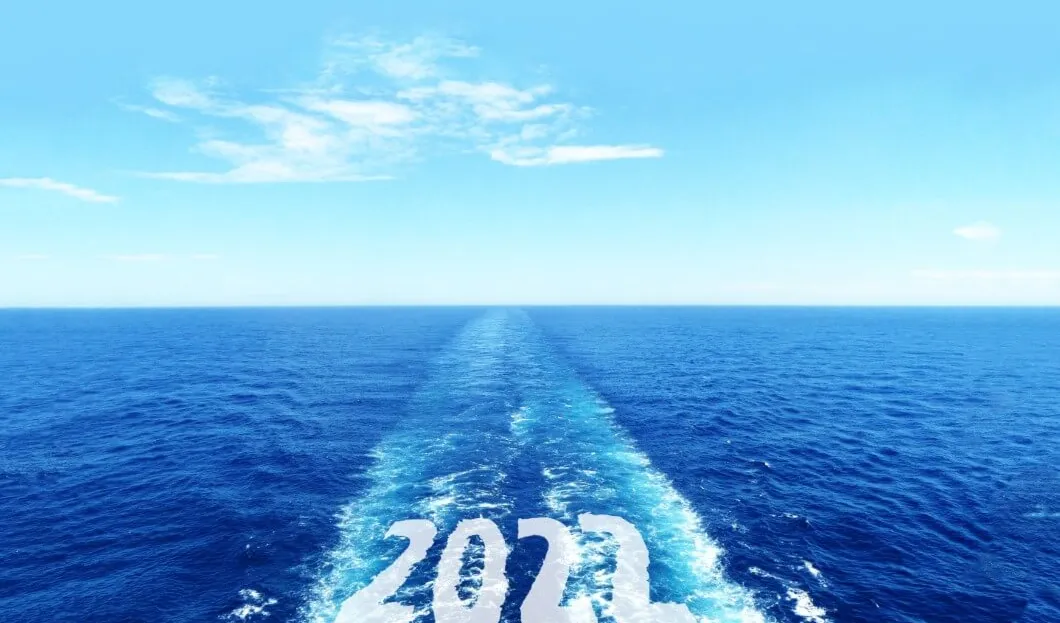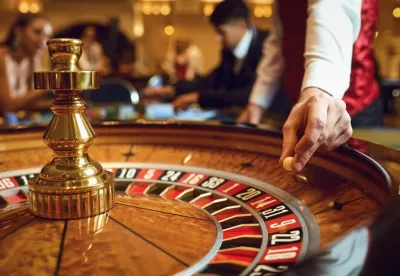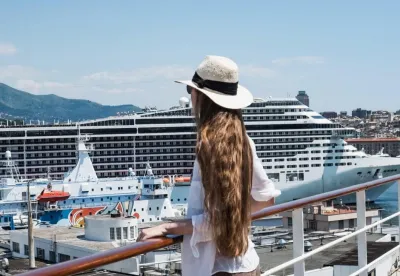
Before the pandemic, the global cruise industry had been growing for years, culminating in a preliminary peak of 30 million passengers worldwide in 2019 – up from 25 million in 2015. Around 450 cruise ships were plying the world's oceans, and with double-digit net yields, the major cruise companies were seen as the frontrunners in tourism, which boosted their shares.
Then came the pandemic – the shutdown had a devastating effect on the cruise industry, which was used to success. Cruise lines are one of the big losers of the pandemic. According to the Cruise Lines International Association (CLIA), the number of passengers fell by more than 80 percent to 5.7 million in 2020, almost all of which were generated in the first two months of the year. The (almost) complete standstill brought the cruise industry a cumulative loss of around 77 billion US dollars last year.
Since then, the companies have been keeping their heads above water with ongoing refinancing, the disposal of older units and initial income from restarts. But the cash burn remains high, and there can be little talk of a recovery in the figures this year. In the meantime, about half of the cruise ships are again open to guests, but often only at moderate capacity. By next summer, according to hopeful expectations, more or less all units should be back in service.
But the pandemic is far from over. The virus continues to frighten and unsettle, especially regarding several thousand fellow passengers on board a large ship.
Covid Issue Well Managed
The majority of cruise companies can be credited with taking the issue of corona safety very seriously and returning to the waters with rigid protection concepts, distance rules, reduced capacity utilization, increased hygiene measures and emergency procedures in the event of individual infections. Covid cases aboard cruise ships have been extremely rare since the restart. Cruises are now as safe as "safety" can ever be guaranteed in these times. People may grumble about the measures on board, but they are what make it possible to get back on the water in the first place.
MSC Cruises for instance now offers services only to vaccinated passengers. In addition, a negative Covid-19 test result is required upon embarkation. MSC Cruises announced these stricter rules before launching its winter cruises. They come into effect on Dec 4. All guests who are not fully vaccinated by the departure date can either postpone their vacation to a later date or request a refund.
Meanwhile, not only do more and more destinations require vaccination, but almost all cruise companies do as well. If, in addition, a PCR test comes into play, this may be considered exaggerated and cumbersome, but it serves the cause.
Optimism Put into Perspective
"The future of cruise industry is bright,” Arnold Donald, CEO of the world's largest cruise company Carnival Corporation, cheered somewhat prematurely this autumn. His optimism about the purpose of the company is not to be underestimated: for the time being, the highly indebted companies have to generate cash quickly. But with low capacity utilization, no profitable operation is possible.
In addition, the entire restart, the Covid measures, the marketing for the continuously developed new routes and the massive increase in fuel prices are making operating costs more expensive. Competition is unlikely to allow these additional costs to be passed on to cruise rates.
Finally, it is uncertain when customers' carefree desire to travel will return in the face of a still smoldering pandemic. In addition, the potential of an important demand-driving cruise target group, the boomers, is gradually diminishing.
Air Pollution Solved?
What also pushed Corona somewhat into the background are the challenges that the cruise industry still has to face with regard to the environment and sustainability. For years, the "dirty ship" discussion dominated, which has been somewhat defused by a decree of the UN authority IMO (International Maritime Organization) that has been in effect since January 1, 2020. The aim is to curb air pollution by reducing the maximum sulfur content of fuel permitted in shipping from 3.5 percent to 0.5 percent.
All shipping companies, whether cargo or passenger, must switch from the pollutant-rich heavy fuel oil to the more environmentally friendly (but more expensive) marine gas oil or - if heavy fuel oil continues to be used - clean the exhaust gases using new and expensive systems such as scrubbers and catalytic converters.
Paradigm Shift Climate
Nevertheless, while air pollution is moving in the right direction, the climate issue has long been the next area for improvement: the cruise industry must also address the issue of greenhouse gases. The IMO wants to cut CO2 emissions down by half by 2050, and the first companies even want to be climate-neutral by then.
Even if LNG (liquefied natural gas) reduces CO2 emissions by around 20 percent – ultimately, fossil fuels must be replaced by regenerative energy. Possible approaches such as battery systems, biogas, hydrogen, synthetic fuel and fuel cells are being researched and worked on, and the first test applications are already in operation. Whatever prevails one day: Shipping companies will be faced with enormous development and investment costs – there is no way around it.
Problems of Mass Tourism
Mega liners, which can accommodate the population of a small town including crew, have in the past "flooded" the infrastructure of port cities and destinations, affecting the quality of life of residents and the experience of visitors. However, in many places, overtourism has been massively fueled by the boom in low-cost airlines and the Airbnb trend.
Nevertheless, after Corona, the renewed sporadic congestion of destinations by large cruise liners cannot be explained away. Here, the ports and authorities concerned are called upon to finally enforce more restrictive "slot specifications", as Dubrovnik and Bergen have already done and as Venice has now initiated with a transit ban for large ships for environmental reasons.
The fact that large cruise liners for thousands of passengers are generally resented may be written off as a matter of taste. Big new hotels, entertainment zones à la Disney or even just overcrowded city centers have long since demonstrated the need for such tourism. Moreover, new cruise lines are up-to-date in terms of environmental technology and simply amaze with their spectacular and well-thought-out resort infrastructure.
It is quite possible that the "destination ship" will become even more of a focus in the future with more short trips, fewer destination calls or even only stops at its own islands or beach sections - a new type of "ghetto tourism" that could offer an alternative to uncontrolled, overflowing mass tourism.
On the other hand, the number of smaller ships is constantly growing, but due to the limited number of passengers, they mainly address a wealthy clientele.









